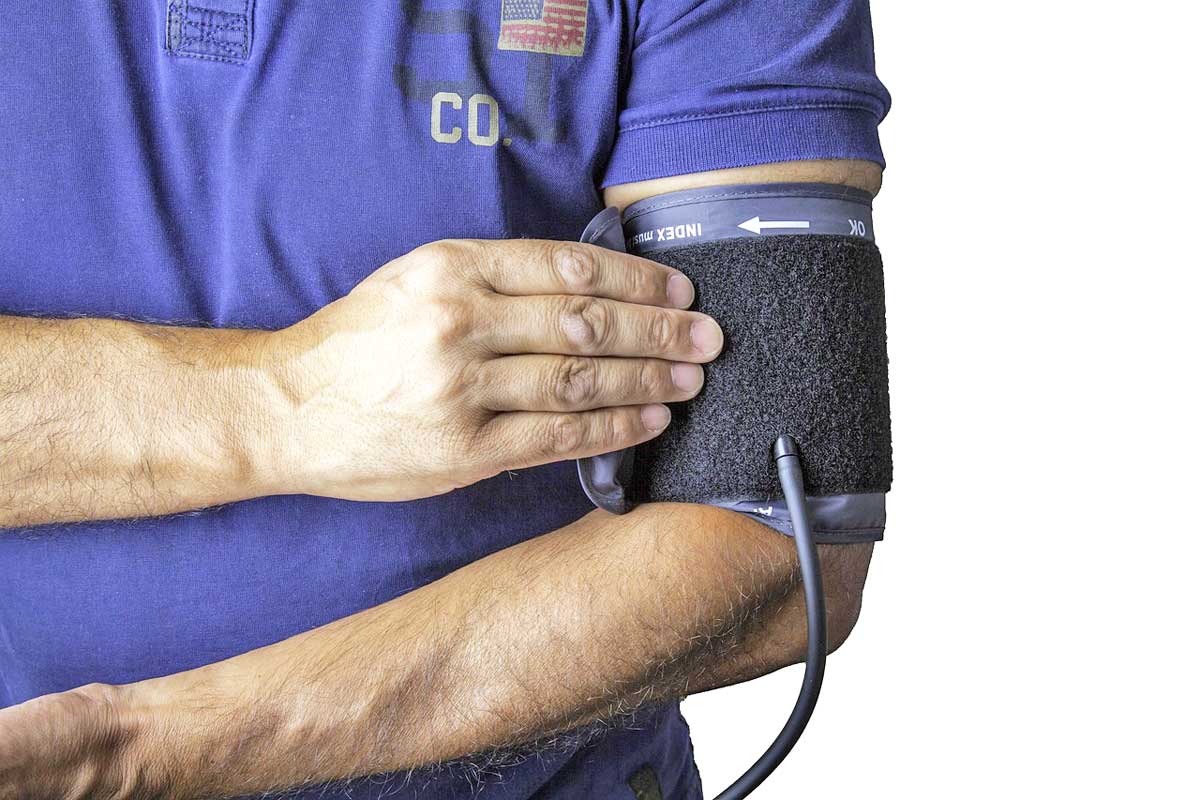It felt like a health advisory from a parallel universe: in a widely watched press moment, a former U.S. president urged people—pregnant women included—to avoid Tylenol. The clip ricocheted through group chats, prenatal yoga classes, and locker rooms. Within hours, medical creators and clinicians spoke up. One of the clearest voices was Dr. Mike Varshavski (@doctor.mike), who warned, “Imagine your own doctor repeating these sentences to you,” and reminded viewers that ignoring a significant fever—especially early in pregnancy—can be risky. This piece is for the many women who keep training through pregnancy and want clean, balanced information that respects both science and sport.
Politics in the Medicine Cabinet
Public statements can sway behaviors overnight, but medicine is not a podium sport. There is a crucial difference between asking a hard scientific question and declaring a causal fact on live TV. For years, researchers have examined whether there might be associations between acetaminophen use in pregnancy and later neurodevelopmental outcomes in children. Associations are signals to investigate, not verdicts to read out loud. When politicians flatten nuance, patients get stuck in the crossfire—afraid of the very tools doctors use to control known dangers like high fever.
Why Pregnant Athletes Should Care
If you’re lifting, walking, swimming, or cycling during pregnancy, you’re already doing a lot right. But staying active doesn’t make you immune to winter viruses like the flu, migraines, or simple overuse headaches. That’s where acetaminophen—known widely as Tylenol—enters the picture. For decades, it has been the preferred over-the-counter option in pregnancy when a clinician recommends symptom relief. The goal isn’t to medicate for convenience; it’s to manage symptoms that, left untreated, can do more harm than good. A 102°F (39°C) fever after a bout of flu is not a badge of toughness; it’s a risk factor that your obstetric team wants you to control.
The Science: Fever vs. the Pill in Your Hand
Let’s separate two ideas that often get tangled. First: fever and overheating early in pregnancy are linked to certain birth defects in observational data and mechanistic models. That’s why hot tubs, saunas, and prolonged overheating are generally discouraged, and why clinicians take maternal fever seriously. Second: acetaminophen remains the first-line antipyretic and analgesic in pregnancy when used correctly and in consultation with a clinician. These two ideas are not in conflict; they explain why treating significant fever can be protective while still using medication with restraint.
Association Isn’t Causation (and Why That Matters)
Observational studies are powerful for spotting patterns in the real world, but they cannot, by themselves, prove causation. Confounders—like the reason a person took the drug, underlying illness, genetics, environmental factors, recall bias, and dosing patterns—can blur the picture. That’s why high-quality medical bodies keep emphasizing the same pragmatic stance: use acetaminophen judiciously, at the lowest effective dose, for the shortest necessary time, and loop in your obstetrician or family doctor. It’s the difference between evidence-based caution and performative panic.
Dr. Mike’s Point, Expanded
“Imagine your own doctor repeating these sentences to you,” Dr. Mike said, underlining how surreal it would be for a clinician to forbid all acetaminophen while ignoring fever risk. His broader message aligns with what obstetric guidelines have taught for years: balanced decision-making. Treat real risks promptly; avoid unnecessary exposure; ask your doctor when in doubt. Social media thrives on shock value; good care thrives on context.
| Warning Sign | Recommended Action | Reason |
|---|---|---|
| Fever >38 °C (100.4 °F) | Stop exercise immediately and contact your healthcare provider | Untreated fever increases risk of pregnancy complications |
| Dizziness or faint feeling | Sit or lie down, hydrate, seek medical advice | May indicate overheating or circulatory issues |
| Severe abdominal pain or bleeding | Emergency—seek immediate medical help | Possible sign of serious pregnancy complications |
| Decreased fetal movement | Contact your obstetrician or midwife right away | Could indicate fetal distress |
| Excessive sweating during moderate activity | Stop exercise, cool down, hydrate | Early sign of overheating |
Safe Exercise Guidelines During Pregnancy
Exercise during pregnancy offers benefits such as improved circulation, reduced back pain, and better mood, but the type and intensity must always be cleared individually with a qualified healthcare provider. Medical bodies including ACOG and the German Society of Gynecology and Obstetrics warn against any activity that causes overheating. A core temperature above about 39 °C (102 °F), as can occur in saunas, hot tubs, or very intense workouts, is linked to a higher risk of neural tube defects in the unborn child.
Heat, Hot Tubs, and the Overheating Question
Therefore saunas, steam baths, and hot tubs are off limits. High-intensity formats such as indoor cycling or poorly ventilated HIIT classes can also raise body temperature to dangerous levels and should be avoided throughout pregnancy, even if no symptoms are present.
Moderate movement is encouraged—walking, gentle swimming, outdoor cycling at an easy pace, or prenatal classes are suitable only if specifically approved by the obstetrician. Training must remain at a moderate level, include regular breaks, and be stopped immediately at any sign of dizziness, discomfort, pain, or excessive sweating. Anyone who was a competitive athlete before pregnancy still needs an individual medical assessment before continuing previous volumes or intensities.
At the first signs of infection—aches, elevated temperature, or flu-like symptoms—exercise must stop completely. The body needs rest, fluids, and professional evaluation. Acetaminophen remains the preferred over-the-counter medication for pain or fever during pregnancy, but only after consultation with a healthcare professional, at the lowest effective dose and for the shortest necessary time.
In summary, pregnant individuals should engage in physical activity only with explicit medical clearance, avoid high-heat or high-intensity workouts, and always prioritize the safety of mother and baby. When in doubt, rest and seek medical advice before resuming any form of exercise.
What Major Medical Bodies Actually Say
The practical guidance you’ll hear from obstetricians lands on a consistent theme: acetaminophen remains the preferred over-the-counter choice for pain and fever in pregnancy when indicated, used at the lowest effective dose for the shortest necessary time, and ideally after a brief conversation with your clinician. That is not a license to medicate casually; it’s permission to treat a known physiologic stressor (fever, severe pain) with a long-standing first-line option while you address the underlying cause.
But Didn’t I Hear About “Warnings” and “Labels”?
Public agencies sometimes update labels or communication to reflect possible associations under study. This tells clinicians to stay alert and counsel patients thoughtfully; it does not rewrite the fact that, in day-to-day practice, acetaminophen remains the recommended antipyretic in pregnancy when clinically indicated. If you see scary headlines, read the fine print and talk to your OB. Policies evolve; the core clinical logic—control significant fever, avoid overheating, use the lowest effective dose, shortest duration—hasn’t changed.
Evidence Over Fear: How to Think Like a Scientist
Ask three questions:
• What risk is proven? (Untreated high fever and overheating in early pregnancy have documented associations with adverse outcomes.)
• What benefit is proven? (Lowering a significant fever reduces physiologic stress on you and the fetus while you and your clinician diagnose and treat the cause.)
• What’s uncertain? (Whether acetaminophen exposure causes a specific neurodevelopmental condition later in childhood—current research does not prove a causal link.) That framework doesn’t fit neatly into a viral soundbite, but it does fit neatly into good prenatal care.
Smart Use, Real Boundaries
This isn’t about popping a pill for every twinge. Use any medication only after discussing it with your healthcare provider. Check your temperature with a thermometer, stay hydrated, cool the environment, and rest. If your fever is high or persistent, or if pain is severe, contact your clinician the same day. If symptoms are mild and improving with non-drug measures, medication may not be necessary. Return to training only after you are fever-free and have explicit clearance from your healthcare provider..
Coach, Partner, OB: Build Your Support Triangle
The best pregnancy training plans are collaborative. Your coach can scale load and intensity around fatigue, sleep, and trimester-specific changes; your partner can help with logistics and recovery time; your OB or midwife can keep an eye on the medical side—blood pressure, iron, weight gain, and any red flags. When everyone is aligned, you can stay active, protect your pregnancy, and keep perspective when the news cycle turns chaotic.
A Note on Internet Experts
Charisma is not credentialing. Some of the best medical communicators are clinicians who also care for patients; some of the worst communicators cherry-pick studies they haven’t read past the abstract. Before you change a medication plan because a viral clip told you to, ask: does this person examine patients with my problem? Do they acknowledge uncertainty? Do they explain benefits and risks or just sell a simple story? Balanced voices like Dr. Mike’s push for context precisely because context is what keeps you safe.
Heat Risks: Saunas, Hot Tubs and Intense Training
High core temperature is the real issue, no matter where it comes from. Prenatal guidelines consistently advise pregnant athletes to skip hot tubs and saunas because they can push body temperature above 39 °C (102 °F), a level linked to neural-tube defects in early pregnancy. But extreme training sessions can raise core temperature too—especially in humid gyms or outdoor summer workouts. That doesn’t mean you need to avoid exercise; it means keep sessions moderate, stay hydrated, wear breathable clothing, and cool down promptly. Monitor how you feel: dizziness, excessive sweating, or nausea are signals to pause and let your body cool before continuing.
Bottom Line for the Pregnant Athlete
Keep moving, keep your cool (literally), and keep decisions grounded in evidence. Fever and overheating are known villains; carefully used acetaminophen remains the first-line tool to bring temperatures down and manage significant pain when your clinician recommends it. That’s not politics; that’s physiology and decades of clinical practice. Train smart, rest hard, and let your medical team personalize the plan to your body and your baby.
Source note: This article discusses public comments made in a widely circulated video by Dr. Mike Varshavski (@doctor.mike) and public press statements by U.S. officials. Quotations are used for informational and commentary purposes.
Sources: ACOG Committee Opinion: Acetaminophen Use in Pregnancy; WHO: Heat exposure and pregnancy risks; Thiele et al., 2021 – Prenatal Acetaminophen Exposure and Child Neurodevelopment; Bauer et al., 2021 – Acetaminophen Use During Pregnancy and ADHD/Autism Meta-analysis; CDC: Acetaminophen in Pregnancy; Dreier et al., 2020 – Maternal Fever and Neural Tube Defects.













